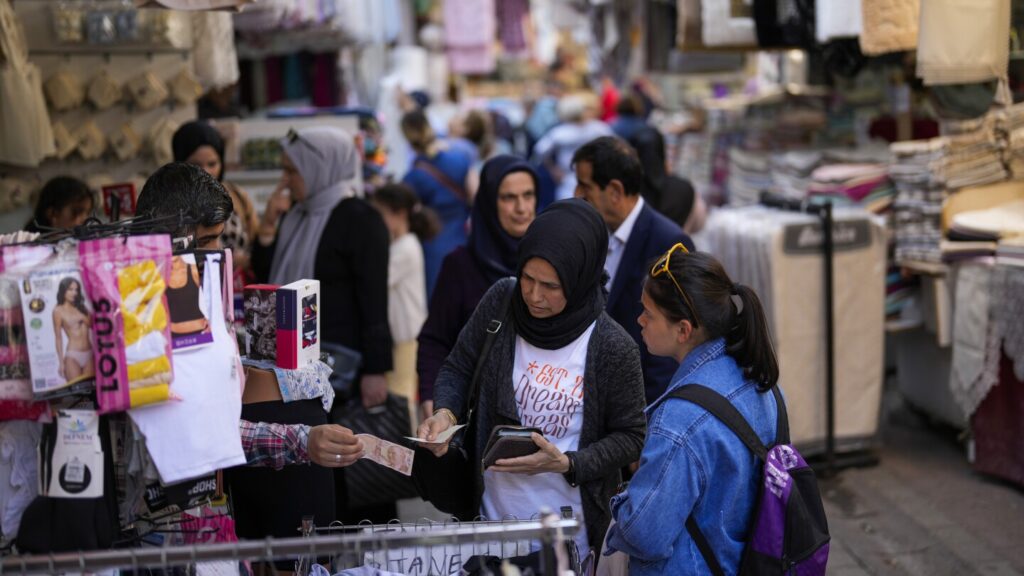ISTANBUL (AP) — Turkey’s central bank raised its key interest rate by 5 percentage points Thursday, another big and expected hike that signals a continuing push toward more traditional economic policies under President Recep Tayyip Erdogan.
The bank raised interest rates to 30 percent as it continued its “monetary tightening process” to curb a surge in inflation and price volatility. Inflation in July and August “was higher than expected,” reaching 58.94 percent last month, the statement said.
Turkey’s more typical economic policy comes after critics blamed a series of interest rate cuts by President Erdogan for worsening a cost-of-living crisis as Turkish families struggle to pay rent and buy basic goods amid soaring inflation.
Erdogan has long argued that lowering interest rates would help fight inflation, a theory that runs counter to traditional economic thinking. Turkey’s central bank began cutting interest rates in the second half of 2021 under pressure from Erdogan.
Meanwhile, central banks around the world have been raising interest rates to tame rising consumer prices in the wake of the coronavirus pandemic and Russia’s war in Ukraine. Now, banks from the US Federal Reserve to the Bank of England are pausing rate hikes as they near the end of their aggressive hikes.
Turkey has some catching up to do in the fight against inflation.
After being re-elected in May, Erdogan appointed a new economic team and signaled a return to more traditional policies.
The team includes Mehmet Simsek, a former Merrill Lynch banker who served as finance minister until 2018, and Hafize Ghaye Erkan, who became central bank governor.
Prior to their appointments, the central bank had already cut its key interest rate to 8.5% earlier this year from about 19% in 2021. Before appointing Erkan’s predecessor in 2021, Erdogan fired three central bank governors who resisted pressure to cut rates.
Economists say Erdogan’s unconventional policies have exacerbated economic turmoil, leading to a currency and cost-of-living crisis that has caused hardship for families, even as he claims his economic model will stimulate growth, exports and jobs.
Since Elkann took office, the bank has gradually raised its policy rate by 7.5 percentage points in August, 2.5 percentage points in July and 6.5 percentage points in June.
The Turkish lira has fallen about 30% against the US dollar since the start of the year and weakened slightly against the greenback on Thursday.


